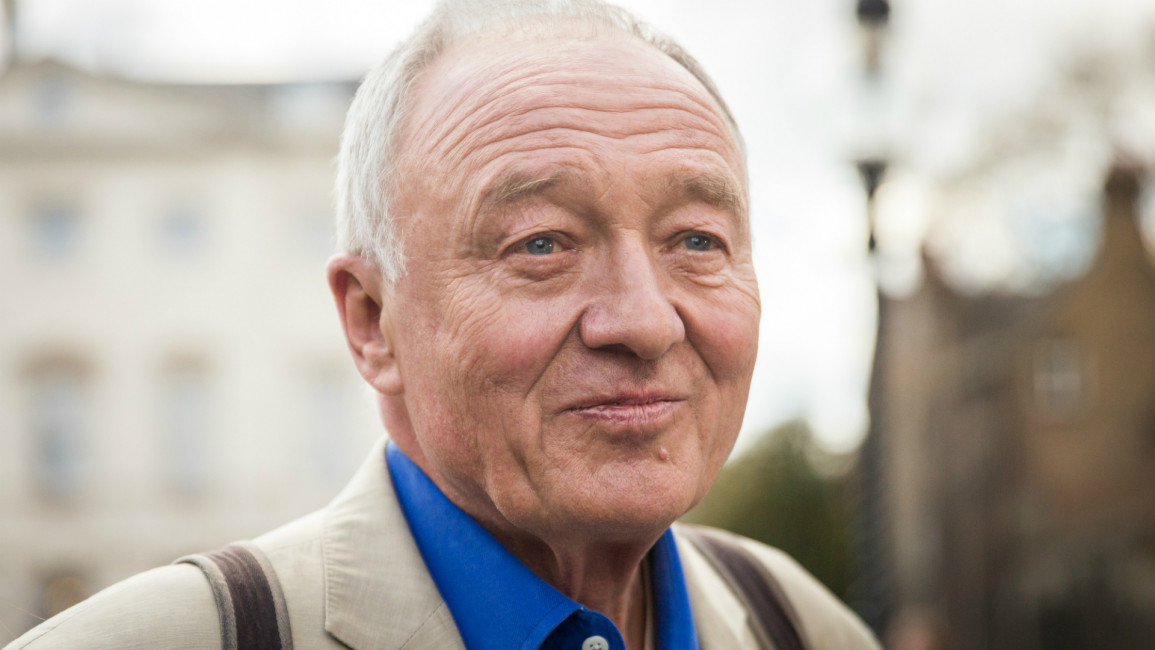Ex-London mayor Livingstone quits Labour Party in anti-Semitism row
Ex-London mayor Livingstone quits Labour Party in anti-Semitism row
Ken Livingstone, former London mayor, has quit the labour party following allegations of anti-semitism.
3 min read
Labour party members have been accused of anti-semitism (Getty)
Former London mayor Ken Livingstone quit the opposition Labour Party on Monday, saying his 2016 suspension for alleged anti-Semitic comments had become a "distraction" to a party recently dogged by the issue.
"After much consideration, I have decided to resign from the Labour Party," Livingstone said in a statement on his website. "The ongoing issues around my suspension from the Labour Party have become a distraction."
The mayor of the capital between 2000 and 2008,the first person to hold the post, Livingstone denied that he had "brought the Labour Party into disrepute" or that he was "in any way guilty of anti-Semitism."
"I abhor anti-semitism, I have fought it all my life and will continue to do so," he said.
Livingstone, 72, was suspended in April 2016 after saying on a radio show that when Hitler won power in Germany in the early 1930s, "his policy then was that Jews should be moved to Israel. He was supporting Zionism before he went mad and ended up killing six million Jews".
Despite the row, party leader Jeremy Corbyn, a veteran leftist and long-time ally, had refused to expel Livingstone despite calls from many MPs and party members.
Leader Corbyn called the resignation "sad after such a long and vital contribution to London and progressive politics", but added it was "the right thing to do."
The anti-Semitism issue came back into public view recently following mounting allegations by Jewish groups that the party under Corbyn had become increasingly anti-Semitic.
The issue appeared to hurt the party in recent local elections, when it performed worse than expected, and failed to deliver the expected blow to Theresa May's divided Conservative Party.
Livingstone acknowledged that his comments "caused offence and upset in the Jewish community," for which he was "truly sorry".
"Under Labour's new General Secretary I am sure there will be rapid action to expel anyone who genuinely has antisemitic views," he explained.
"I am loyal to the Labour party and to Jeremy Corbyn. However any further disciplinary action against me may drag on for months or even years, distracting attention from Jeremy's policies.
"I am therefore, with great sadness, leaving the Labour Party," he added.
The high-profile resignation in March of Christine Shawcroft, the official in charge of cracking down on anti-Semitism in the party, pitched the party into crisis.
Scores of party members have been suspended, expelled or forced to resign for making anti-Semitic statements since Corbyn became party leader in 2015, but he and his far-left supporters have been accused of a "complacent" approach to the problem.
Corbyn was forced to apologise over a Facebook post he wrote in 2012 in support of a street artist whose mural, featuring clear anti-Semitic symbolism, was due to be removed following complaints.
"After much consideration, I have decided to resign from the Labour Party," Livingstone said in a statement on his website. "The ongoing issues around my suspension from the Labour Party have become a distraction."
The mayor of the capital between 2000 and 2008,the first person to hold the post, Livingstone denied that he had "brought the Labour Party into disrepute" or that he was "in any way guilty of anti-Semitism."
"I abhor anti-semitism, I have fought it all my life and will continue to do so," he said.
Livingstone, 72, was suspended in April 2016 after saying on a radio show that when Hitler won power in Germany in the early 1930s, "his policy then was that Jews should be moved to Israel. He was supporting Zionism before he went mad and ended up killing six million Jews".
Despite the row, party leader Jeremy Corbyn, a veteran leftist and long-time ally, had refused to expel Livingstone despite calls from many MPs and party members.
Leader Corbyn called the resignation "sad after such a long and vital contribution to London and progressive politics", but added it was "the right thing to do."
The anti-Semitism issue came back into public view recently following mounting allegations by Jewish groups that the party under Corbyn had become increasingly anti-Semitic.
The issue appeared to hurt the party in recent local elections, when it performed worse than expected, and failed to deliver the expected blow to Theresa May's divided Conservative Party.
Livingstone acknowledged that his comments "caused offence and upset in the Jewish community," for which he was "truly sorry".
"Under Labour's new General Secretary I am sure there will be rapid action to expel anyone who genuinely has antisemitic views," he explained.
"I am loyal to the Labour party and to Jeremy Corbyn. However any further disciplinary action against me may drag on for months or even years, distracting attention from Jeremy's policies.
"I am therefore, with great sadness, leaving the Labour Party," he added.
The high-profile resignation in March of Christine Shawcroft, the official in charge of cracking down on anti-Semitism in the party, pitched the party into crisis.
Scores of party members have been suspended, expelled or forced to resign for making anti-Semitic statements since Corbyn became party leader in 2015, but he and his far-left supporters have been accused of a "complacent" approach to the problem.
Corbyn was forced to apologise over a Facebook post he wrote in 2012 in support of a street artist whose mural, featuring clear anti-Semitic symbolism, was due to be removed following complaints.



